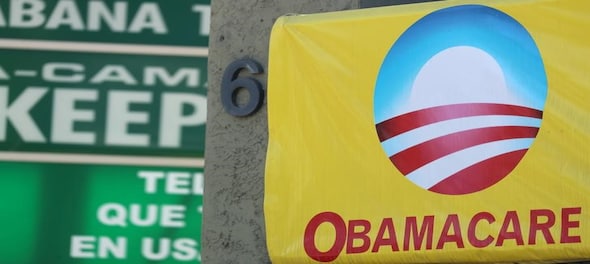
The pandemic has ushered in vast changes in how people work, and where they work. The changes are evident in countries like the US, where millions of individuals have quit their jobs in what is being called the Great Resignation. But even as roughly 4 million workers, nearly 3 percent of the entire American workforce, have quit their jobs between July and November each month last year, the number would have been even greater if not for the American healthcare system.
Healthcare, especially its cost and accessibility, has become a big political hot button in the US. The rising cost of accessing medical treatment has been met with increasingly louder calls for universal healthcare. Staunch capitalists have baulked at a ‘socialist’ concept like that of universal healthcare or even single-payer healthcare systems like those seen in Western allies like the UK, Canada, Germany and others.
Healthcare and work
The US is the only advanced economy where citizens are allowed to be uninsured. Those who are insured find themselves insured through employer-sponsored health insurance or group insurance plans. According to data from the Kaiser Family Foundation (KFF), 49 percent of Americans are insured in this way.
In 2020, only 8.6 percent of the population was not covered under any health insurance, according to the US government.
It is for this reason that health insurance benefits are one of the major benefits that workers in the US get from their jobs. With often ludicrously high costs for medical procedures, drugs and treatments, most Americans can’t risk being without any health insurance. These workers would rather stick to their current workplaces solely for the health insurance benefits than move to a new job or try their hand at self-employment.
This is why a survey of 1,400 adults conducted by YouGov for Policygenius, found that 33 percent of respondents would be very or somewhat likely to leave their jobs if insurance was not a factor. 26 percent had responded that they would be very or somewhat likely to start their own business if health insurance wasn’t a factor.
Economists have even come up with a name for this phenomenon – “job lock”.
“The fear is that because we’ve created this unnatural link between health insurance and jobs that people might be staying at a job they’re not necessarily the best match for because they can get the health insurance they need there,” explained Scott Barkowski, a health economist at Clemson University, to Policygenius.
This status quo emerged as an accident as a result of WWII, when President Franklin D Roosevelt froze wages in 1942 to prevent increasing inflation in the country. The companies in the country still needed to compete over the same workforce somehow, so they began offering health insurance benefits to workers. A year later the Internal Revenue Service, the body responsible for collecting taxes and administering the tax code, introduced an exemption for companies that were paying for employer-based health insurance.
This arrangement worked out well for big corporations since it was economically better for them to pay out an equivalent sum through health insurance benefits than salaries and bonuses as the former were not taxed.
The system continued for decades with costs relating to healthcare continuing to balloon up – administrative expenses, corporate greed and price gouging being attributed to the increase by research.
Obamacare
On November 4, 2008, Barack H Obama became the 44th President of the United States. He came to sit in the most powerful position in the world right at the beginning of the global economic crisis. The economic crisis had caused 8.8 million jobs losses.
For the unemployed Americans, who often spent their entire life savings on houses and which were now worth only a fraction of the amount, healthcare costs were exorbitant.
As a result of the crisis, President Obama set out to introduce the healthcare reform legislation to the US Congress. The reform was intended to reduce the cost of healthcare across America while also improving the quality of care.
Decried by the members of the Republican party, the reforms became a widely contested topic. After much debate a watered-down version of the reforms, the Patient Protection and Affordable Care Act (PPACA), was finally signed into law.
Within its first year of introduction, the ‘Obamacare’ Act as it was first disparagingly called, managed to add 10 million Americans to insurance networks. While the new law did not change Medicare (the health insurance program for Americans above 65), Medicaid (the health insurance for some eligible Americans) and the employer market, it did overhaul the individual market for insurance providers.
It finally allowed millions of Americans access to affordable healthcare by giving them cheaper health insurance, with also the option of availing of financial aid (which still 70 percent of Americans do not know about).
The situation today
Despite Obamacare, the health insurance marketplace remains prohibitively expensive for many who don’t get any health insurance from their workplace. 71 percent of Americans who don’t possess any health insurance said that they didn’t buy any insurance because of the cost.
Marketplace plans have smaller networks, cover a smaller list of pre-existing conditions, and have much higher copayments and deductibles. Those who don’t qualify for financial aid are left with very few alternatives.
The American Rescue Plan Act enacted by President Joe Biden in March 2021 has increased the number of people eligible for financial aid for taking insurance plans through the Marketplace. But the subsidies in the plan are only in place for two years.
The Build Back Better Act, which is currently tabled before the Senate, would extend those subsidies to 2025 and expand the subsidies as well. The Act would enhance insurance coverage to another 3.4 million Americans over the next decade through subsidies, if passed.
Whether politicians will realise the changing dynamics of the American workforce due to the pandemic and increase the social safety net as a result is yet to be seen.



